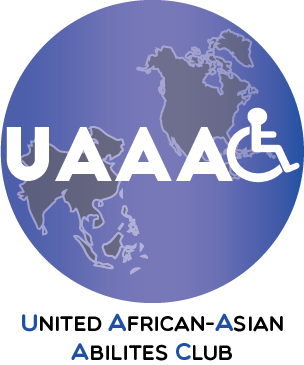Mr. Bruce Maiman wants to pay more
taxes for a government body to enforce the access laws. He believes
allowing people with disabilities to sue to enforce the access laws tend to
promote financial greed.
Access laws require government and
businesses to provide full and equal access to people with disabilities.
Access means access to programs, services and facilities. As to access to
facilities, there are accessibility codes, which must be followed. A
government body or private lawsuit does enforcement of the access laws.
Let's examine the United States and
Philippine Access enforcement systems.
In the USA the attorney general or a
private person may sue for access compliance. In the USA the federal
access law is called the Americans With Disabilities Act. In 1992 the
Philippine passed its access law called the Magna Carta. The Magna Carta
is almost the same as ADA but there is only government enforcement. Most
places where the wealthy or foreigners like me go are accessible in the
Philippines. However, most places for common folks are not
accessible. A person may complain to a government body but no action will
be taken.
In contrast, in the USA a person may
file a complaint with the federal or state attorney general. The attorney
general reviews the complaint for substantial public importance and to determine
if its budget allows for it to take the case. Most of the time the attorney
general sends a letter to the person stating it cannot take the case and
recommends the person hire a lawyer.
The sole reason private lawyers take
cases is to earn fees. The ADA says if a lawyer wins a case the business must
pay the lawyer. Good or bad motives have very little to do with a
law practice. For the lawyer there are two questions: 1. Is the case strong? 2.
How to get paid. The US Department of Justice has stated that the only
practical way to enforce ADA is through private lawsuits. Why? Most
businesses violate the access laws. The Government would need more than
the defense budget to enforce ADA.
So do we want increased taxes to
enforce the access laws? Do we want the Philippine do nothing model?
Or do want the greedy lawyer model? Of course, we want to
live in a perfect society where businesses follow the access laws.
I don't think a taxpayer should pay anything just because a business
violates the access laws. The business should pay for the civil wrong. The
access laws are not a public health and safety concern. The access laws are not
a criminal concern. The access laws are a civil rights concern. Some civil
rights are a public concern such as access to an airport. However, most
civil rights are an individual concern such as a person in a wheelchair cannot
access his local drug store. Why should the taxpayer pay for access enforcement
in this case? In a free society it is up to the individual to enforce
their rights through the courts. This is not the burden of
taxpayers.
